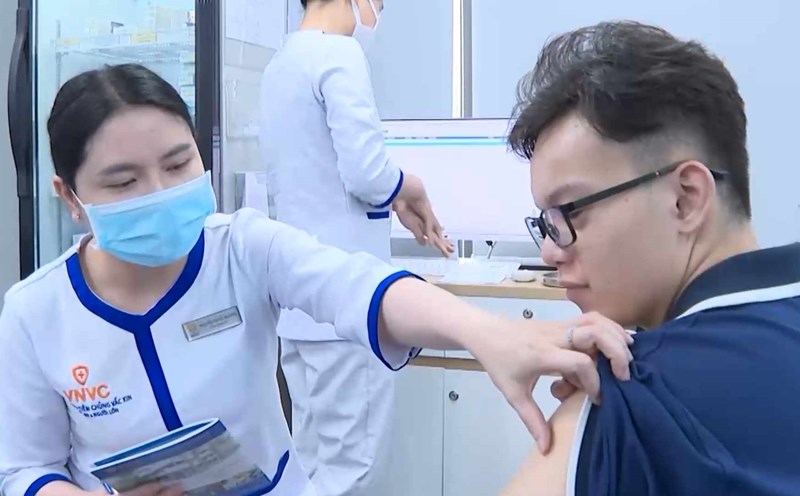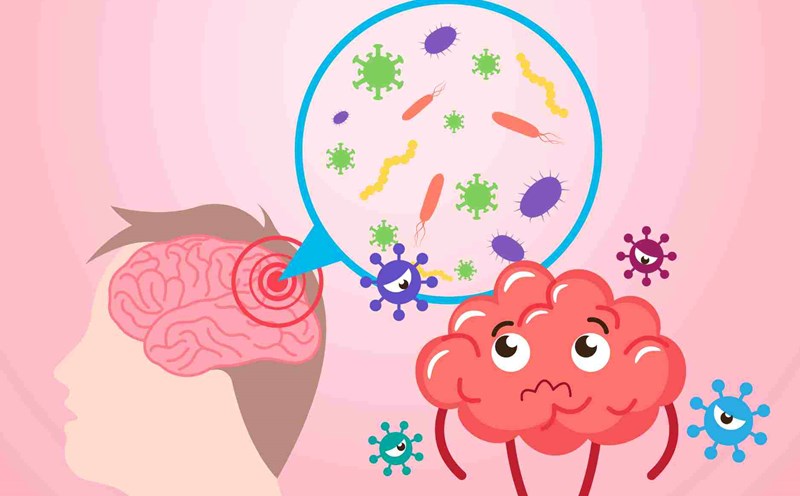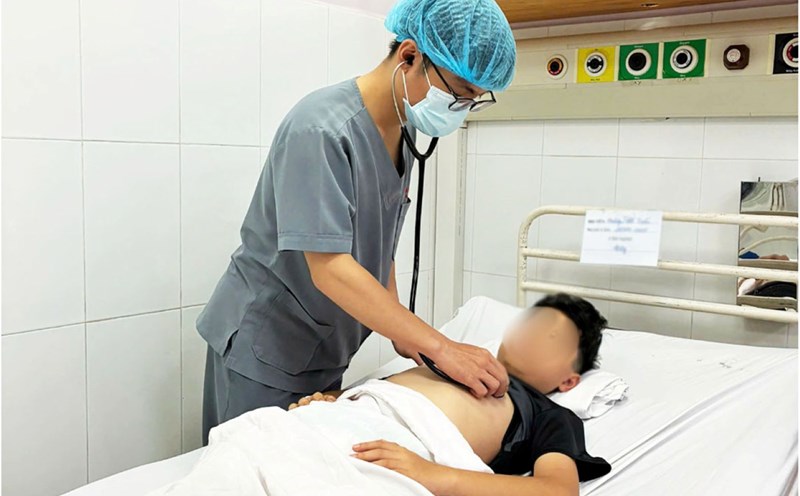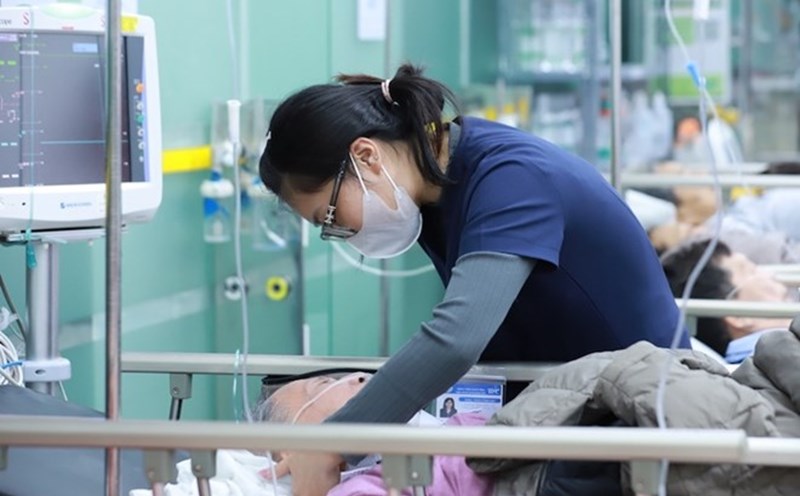The mortality rate is up to about 50% if not treated promptly
Faced with the risk of increasing cases of mobile brain diseases in Vietnam, especially in adolescents - those with high bacteria but no symptoms, the Vietnam Preventive Medicine Association organized a scientific conference to update the epidemic situation and promote proactive prevention strategies with the support of GSK Vietnam.
Invessive meningococcal disease (IMD) is not common but very serious, with a mortality rate of up to about 50% if not treated promptly, and patients can even die within 24 hours of the course of the disease.
Even with timely treatment, about 20% of survivors of IMD face serious long-term sequelae, which can be permanent disability.
Associate Professor, Dr. Pham Quang Thai, Deputy Head of the Department of Infectious Disease Control, National Institute of Hygiene and Epidemiology, said: Steriotic encephalitis is still a burden for global public health. The survivors often leave lifelong sequelae that affect the quality of life of patients and those who have the responsibility to take care of them in the family.
Based on data from infectious disease monitoring software according to TT 54/2015/TT-BYT, from July 2016 to September 2025, scoliosis is increasing significantly. From the beginning of the year to September 15, 2025, the whole country has recorded 38 cases of brain- authoritative infections, of which the North recorded an increase of 45% and the Southern region recorded an increase of 83% compared to the whole year of 2024".

Children and adolescents - a group at high risk of disease - need to be proactively protected
Not only in Vietnam, but also in the world, the increase in IMD cases, especially in adolescents, is ringing an alarming bell.
Associate Professor, Dr. Cao Huu Nghia, Head of the Department of Medical Sciences - Pasteur Institute of Ho Chi Minh City, said: Children under 5 years old, especially under 6 months old and adolescents from 15 to 24 years old are the two groups at highest risk of disease.
In particular, adolescents are at high risk of developing thrombocytopenic purpura with a coefficient of 25% to 32%. This is a group with a dual risk of carrying bacteria, transmission and infection and the potential consequences are the number of cases and transmission to other age groups, so this group needs to be prioritized for disease prevention.
In Vietnam, the disease is widespread and recorded in many localities, often occurring in winter - spring, especially in crowded areas such as schools, dormitories, kindergartens, military posts, from people who regularly smoke or often go to nightclubs...
The September-October brain brain workshop took place before World Meningococcal Day (in October every year). This year's message is Now is the Time for Action to continue calling for unity in the race to defeat meningitis (including meningitis by globular brain tissue), emphasizing the need for global cooperation to eliminate this disease by 2030.
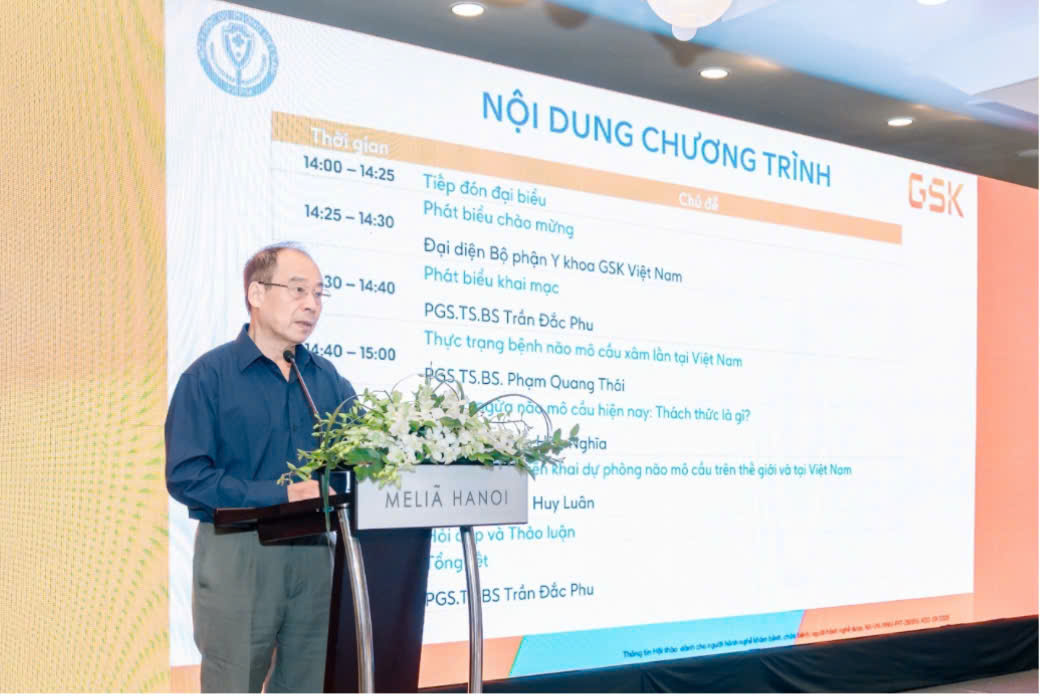
According to Associate Professor, Dr. Tran Dac Phu, Vice President of the Vietnam Preventive Medicine Association, to prevent brain- authoritative diseases more comprehensively, it is necessary to fully vaccinate serotypes that often cause brain- authoritative diseases.
According to some studies, up to more than 90% of cases of mobile phone disease in Vietnam are caused by huyet group B (MenB). Dr. Phu also recommends proactive prevention of scoliosis with vaccines for all ages, especially for adolescents, which is very necessary.
We always believe that prevention will help us stay ahead of the disease, so we are constantly striving to expand coverage and increase access to vaccines. Every step forward in science is the foundation for today's action - to protect a healthier tomorrow" - Dr. Pham Thi My Lien, Chairman of GSK Vietnam shared.

